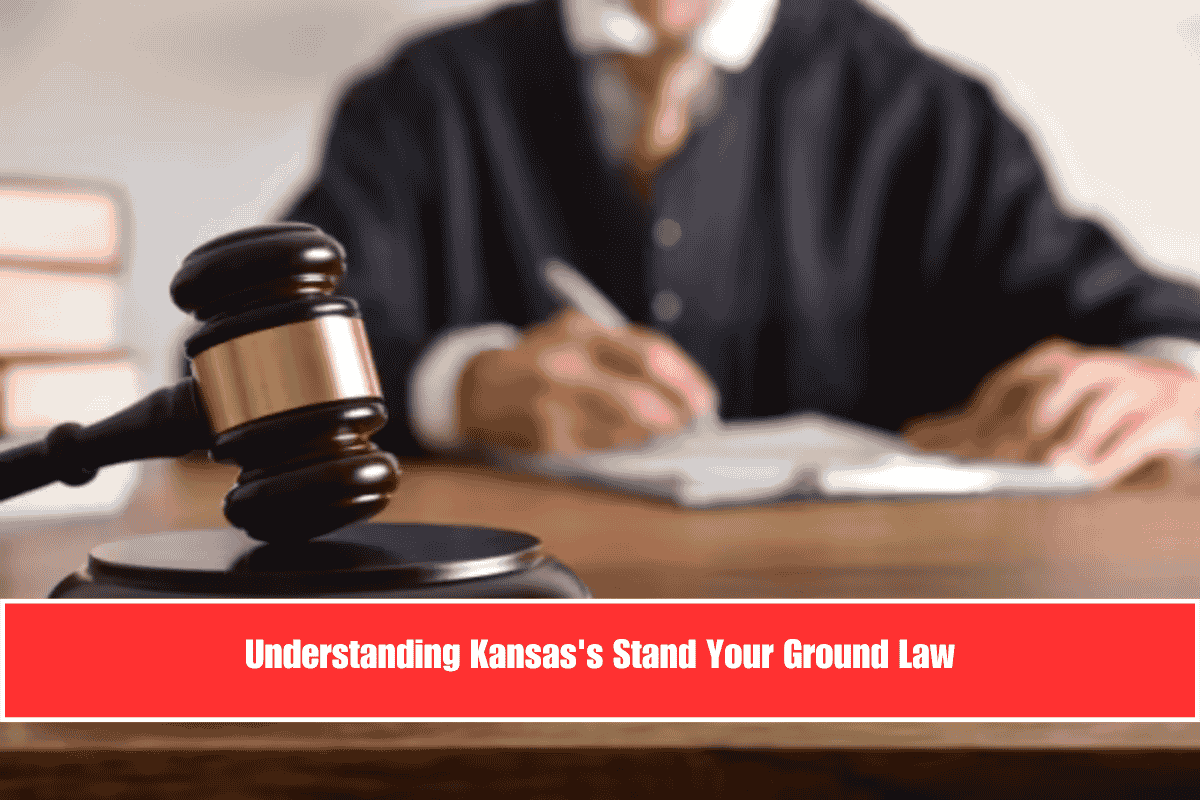Kansas’s Stand Your Ground law allows individuals to use force, including deadly force, in self-defense without a duty to retreat if they are in a place where they have a legal right to be and reasonably believe such force is necessary to prevent imminent harm.
Key Provisions
- No Duty to Retreat:
Kansas law explicitly states that there is no obligation to retreat before using force in self-defense, whether you are at home, in your vehicle, at work, or in public spaces, as long as you are legally present. - Reasonable Belief Standard:
The law requires both a subjective and objective standard:- Subjective: The person must genuinely believe force is necessary.
- Objective: A reasonable person in the same situation would also believe force is necessary.
- Use of Deadly Force:
Deadly force is justified if you reasonably believe it is necessary to prevent imminent death or great bodily harm to yourself or another person. - Castle Doctrine:
Kansas law presumes that the use of deadly force is reasonable if someone is unlawfully entering your home, vehicle, or workplace. - Immunity from Prosecution:
If a person invokes Stand Your Ground, they are entitled to a pretrial immunity hearing. If the judge finds the use of force was reasonable, the case is dismissed, and the individual is immune from both criminal prosecution and civil liability.
Practical Considerations
- Proportionality:
The force used must be proportional to the threat faced. Excessive force beyond what is necessary can invalidate a self-defense claim. - Burden of Proof:
In a pretrial hearing, the prosecution must prove that the use of force was not justified. This burden shift is significant in protecting those who claim self-defense. - Limitations:
- The law does not protect those who are the initial aggressors.
- You must be in a place where you have a lawful right to be.
Special Notes
- Law Enforcement:
Kansas’s Stand Your Ground law also applies to law enforcement officers, granting them immunity in certain use-of-force situations, which has led to debates about accountability. - Public Health Impact:
Studies have linked Stand Your Ground laws to increases in violence and homicide rates in states where such laws are enacted.
Table
| Provision | Kansas Law Details |
|---|---|
| Duty to Retreat | No duty to retreat if lawfully present |
| Use of Deadly Force | Permitted if reasonably necessary to prevent imminent death or great bodily harm |
| Presumption in Home/Car | Presumption of reasonableness if defending home, vehicle, or workplace |
| Immunity | Pretrial immunity hearing; immunity from prosecution/civil liability if justified |
| Reasonable Belief | Both subjective and objective standards applied |
| Proportionality Required | Force must match the level of threat |
Kansas’s Stand Your Ground law provides robust protections for individuals using force in self-defense, removes the duty to retreat, and offers immunity from prosecution if the use of force is deemed justified. However, the law requires that the belief in the need for force is both genuine and reasonable, and that the response is proportional to the threat faced.
Sources
[1] https://www.aclukansas.org/sites/default/files/field_documents/hts_stand_your_ground.pdf
[2] https://riveralawoffice.com/criminal-defense/kansas-self-defense/
[3] https://crateclub.com/blogs/loadout/does-kansas-have-a-self-defense-law-understanding-the-legal-framework
[4] https://www.prnewswire.com/news-releases/what-are-stand-your-ground-laws–criminal-defense-attorney-wichita-ks-302445163.html
[5] https://www.duikc.com/stand-your-ground-law-in-kansas-k-s-a-21-5231-formerly-k-s-a-21-3219
















Leave a Reply